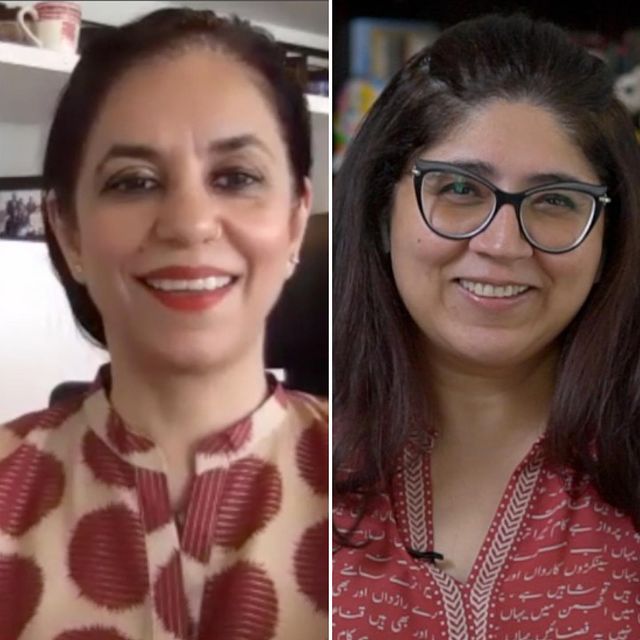It is not wrong to say that we are in a state of national crisis when it comes to women’s rights. The nation witnessed some of the most gruesome cases of women rights violation in the last one year involving domestic violence, rape, and femicide. The question rises that what role does mainstream media play in this dire situation that we are in today?
To talk about this subject and more, Aamna Isani of Something Haute had a chat with Roshaneh Zafar, a trailblazer who set up Kashf Foundation in Pakistan with the sole purpose of economically empowering women in Pakistan. Roshaneh has used mainstream media very effectively to highlight the problems faced by women in Pakistan. Kashf Foundation is behind many masterpieces that aired on television over the years. In 2013, Rehai was made on the subject of child brides and child abuse. Then, Udaari was aired on the extremely horrific crime of child sexual abuse and about pedophile lurking in families. Later, we saw Akhri Station which was an anthology of seven stories related to women and their domestic problems. The most recent one to conclude was Dil Na Umeed Toh Nahi, which opened a much-needed conversation on very relevant and important subject like women trafficking and much more.

Aamna Isani and Roshaneh Zafar
“The best way to address a problem or social stigma is to change the narrative around it. When we worked on Udaari, the Kasur incident was in the news. Now, when we researched we found out that the culprits behind 85% cases of child abuse are relatives or acquaintances who are known by the children or who mostly live in their homes. Similarly, domestic violence is a result of what happens inside a home and has got nothing to do with children or women doing outside or with their appearances or clothing. It is happening because violence has been normalised in our society,” she said.
“The second aspect is about gender roles; the expectations that society has from girls and boys respectively and thus boys are always the dominating gender. Media plays a very important role in changing the narrative and initiating a conversation. TV can change mindsets but it is normalising violence against women. It has a subliminal impact that we don’t notice. Essentially, media is promoting the narrative that women are helpless and are victims of their fates that they cannot change,” she added.
Talking about her work through Kashf Foundation, Roshaneh added that they are not the part of the media industry.
“We are outsiders and we think that sometimes to wake people up, we have to make them uncomfortable. We don’t sugarcoat the message to make it more pleasant for the viewers. However, yes, you have to do it sensitively. You cannot sensationalize it. A subject like child abuse in Udaari was meant to make people realize that this is a reality, contrary to popular opinion that this doesn’t happen in Pakistan.”
Read: Haute Review: Dil Na Umeed Toh Nahi concludes with lessons of hope and resilience
About Dil Na Umeed Toh Nahi, Roshaneh shared that she wanted to cover a new subject this time and Samiya Mumtaz’s mother told her to research on women trafficking.
“During research, we found out that Pakistan is a flash point of human trafficking and there are many forms of it. There is domestic servitude, bonded labour, sex trafficking, beggar mafia and a lot more. Then we met parents to find out why children ran away from home like we showed the case of Jimmy in the drama. It was to show that even boys in our society are not safe,” she explained.
Watch the complete interview here:





